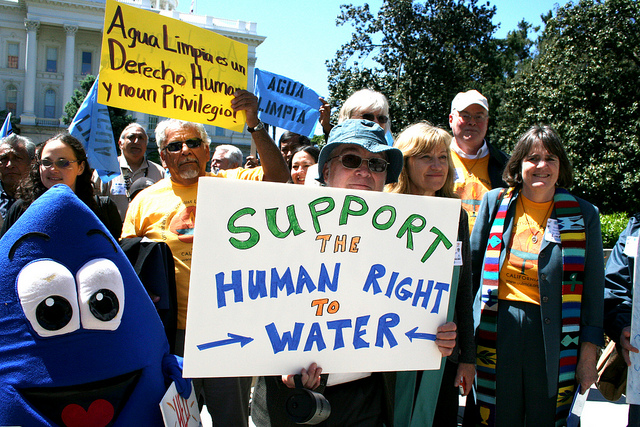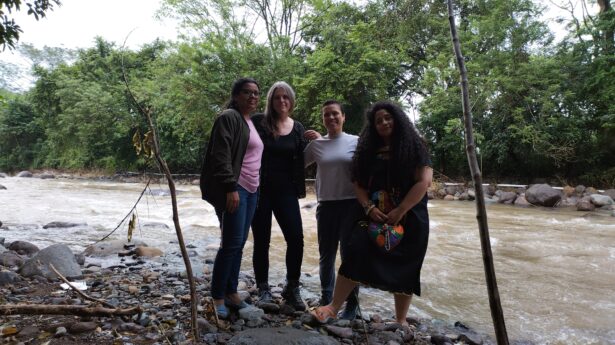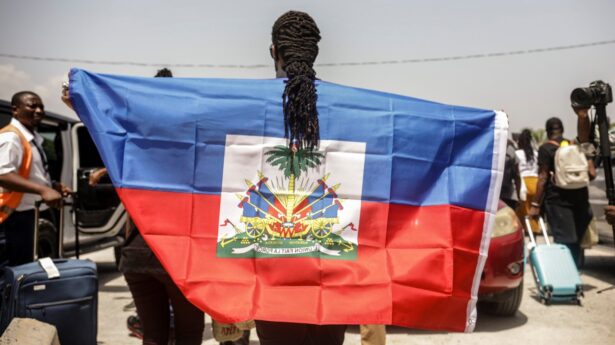The Unitarian Universalist Service Committee advances human rights through grassroots collaborations.
In Their Own Words: Ending Gender-Based Violence in Darfur

October 3, 2012
An interview with Salma Abugideiri of the Peaceful Families Project
Originally published in the Summer/Fall 2012 issue of Rights Now.
UUSC and the Peaceful Families Project have engaged religious and community leaders in Darfur to reduce domestic and gender-based violence (GBV) in their communities. The program seeks to change attitudes toward GBV from the assumption that it is normal to the recognition that GBV is inconsistent with time-honored Islamic values. Gretchen Alther, a fellow in the Asia Pacific Leadership Program at the East-West Center in Honolulu and former senior associate in UUSC’s Rights in Humanitarian Crises Program, interviewed Salma Abugideiri, codirector of the Peaceful Families Project, about the trainings she led in Darfur in January 2012.
In UUSC’s work in Darfur, there is a very conscious effort to connect imams and women leaders. Why is that important?
The role of the imam is critical: without the imam’s endorsement of an attempt at change, people will resist it. They’ll say it’s against our religion or it’s against our culture. But people are willing to reconsider cultural values if compelled by their religious teachings. So when an imam says something, it holds a lot of power. But women mostly learn from other women. So if women leaders understand and feel strong enough to use religious teachings, and if the imam gives them credibility, then women have a lot of power.
Women are actually the most influential people in a society because, as mothers, they’re passing down the social norms. The work can’t be effective without a partnership between women leaders and imams. And the men also have to be on board as role models and stand beside the women — because it isn’t safe for women alone to be change agents. So, ultimately, everybody has to work together.
What does it mean for Darfur that we have come to a point where we can do this kind of work?
It’s exciting. It’s an opportunity for people to have a better quality of life — men and women, because men are also oppressed. Men and women can have lives in which they can fulfill their potential and have relationships that are richer, healthier, and happier. This work opens the possibility for families, communities, and society to grow. And of course, we know that when women are well in a society, all kinds of good things happen.
As you reflect on the work you’ve done with UUSC in Darfur, what stands out to you?
People’s passion and resilience. With few resources and a few new tools — tools they already had, they just didn’t know it — they’re willing to do huge things. They have such determination, passion, and optimism and are taking on really huge cultural changes.
How has this work in Darfur influenced the work you are doing on these issues in the United States?
It’s definitely inspired me, because if people in Darfur can make these changes, we certainly can. It’s broadened my understanding of the complexity of gender-based violence. It has also reminded me that boys and men are also victims and sometimes need to be empowered as much as women. Cultural systems don’t give wiggle room to either gender: both need to be empowered. This experience has reaffirmed my commitment to this work.

